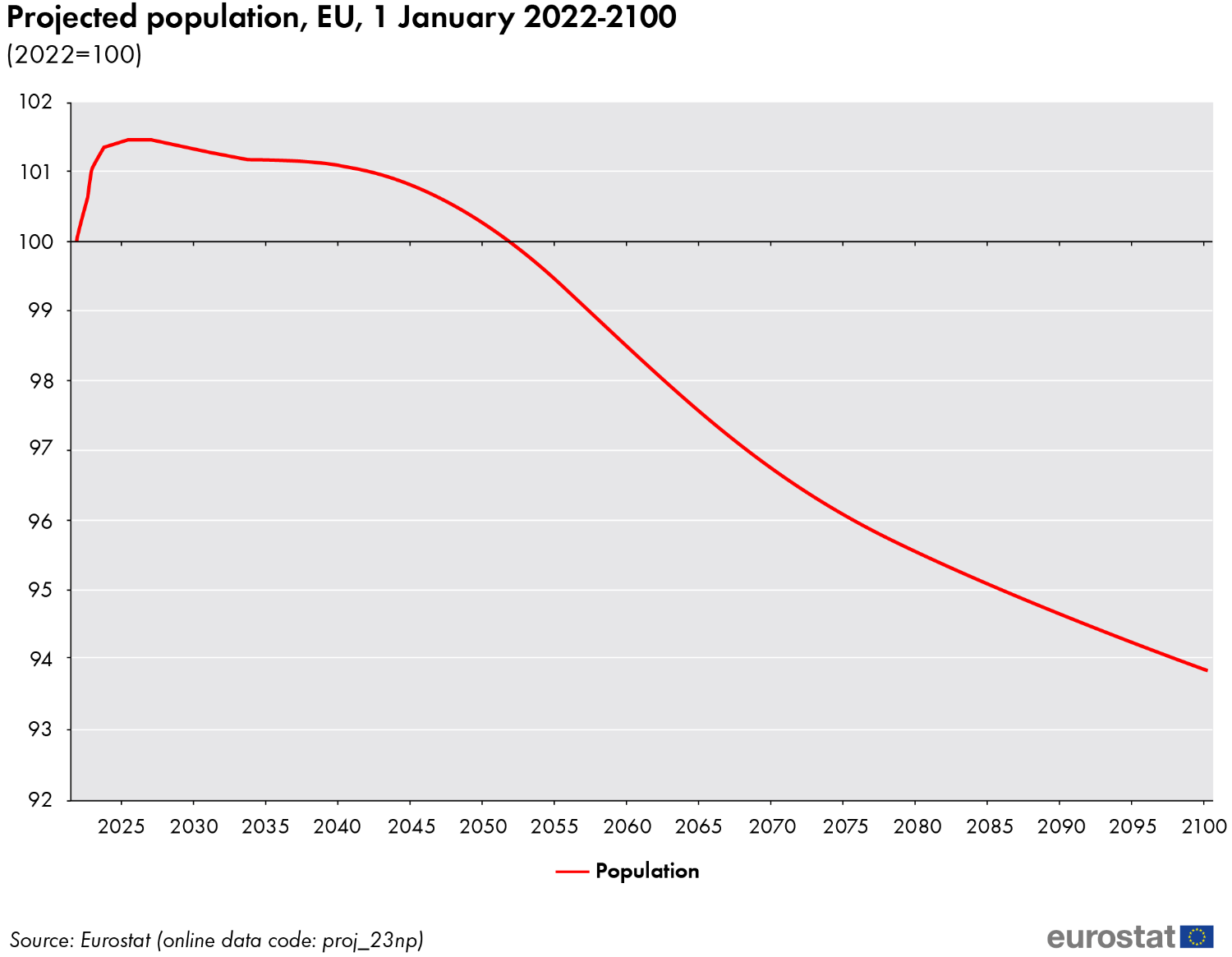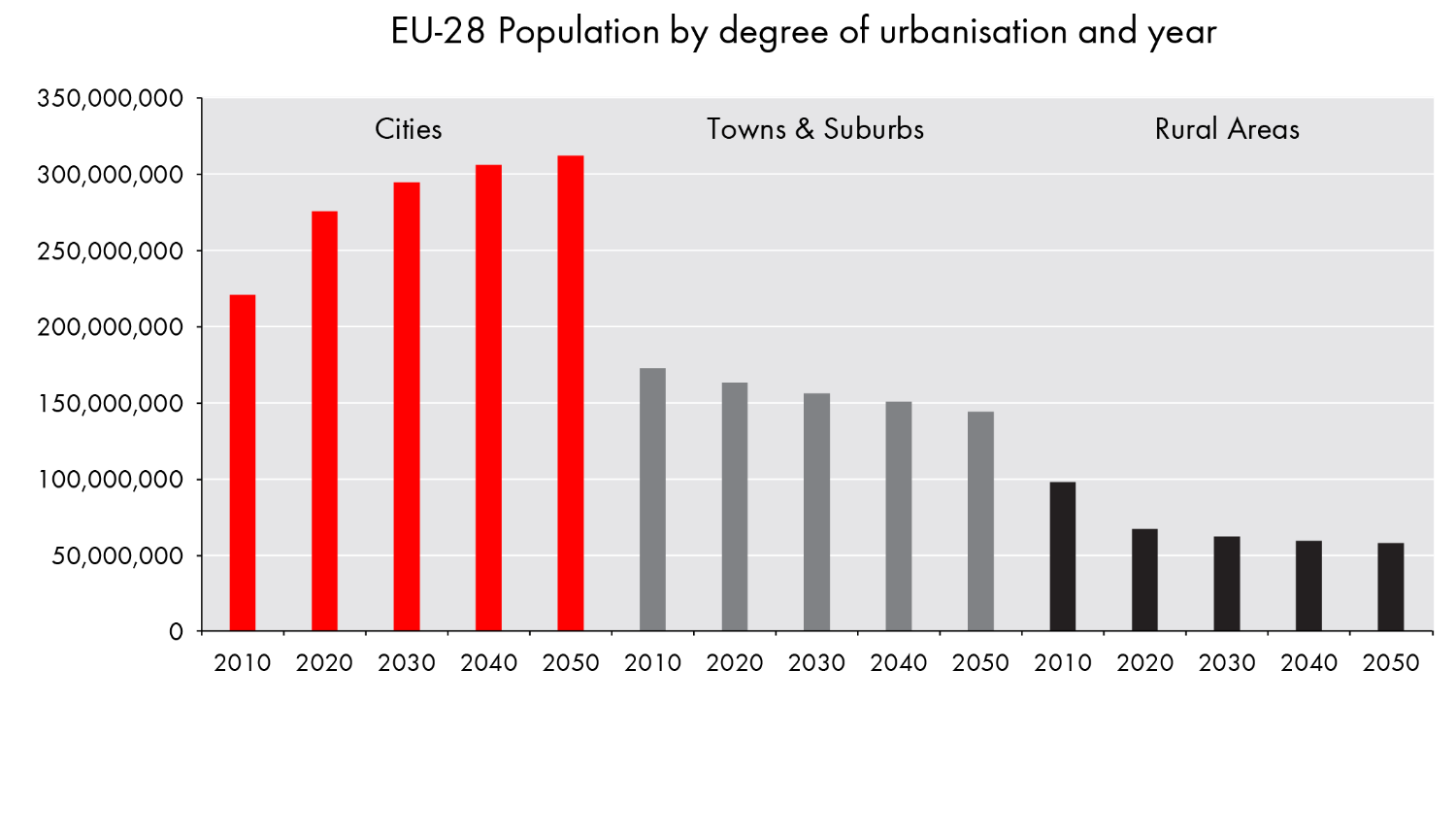SDGs
Although Q-Park’s business potentially has an impact on many of the 17 SDGs, we have identified four that align most with our business, strategy and objectives and where we believe we can make a difference. These are SDG 7 (Affordable, reliable, sustainable and modern energy), SDG 9 (Industry, innovation and infrastructure), SDG 11 (Sustainable cities and communities) and SDG 17 (Partnerships for the goals).
Figure 26 SDGs 7, 9, 11 and 17

Why are these SDGs significant to Q-Park?
With the EU population forecast to increase in the coming years1 coupled with greater numbers of people living in urban areas and rising prosperity, urban infrastructure is becoming significantly more important.
Figure 27 EU-28 Projected population

Figure 28 EU Population by degree of urbanisation

One of the accompanying challenges municipalities face is to maintain a liveable city as they contend with a range of issues: congestion, search traffic cruising for a place to park, reduced accessibility, air pollution, as well as the health and wellbeing of their residents, unattractive and unsafe streets, and squares full of parked cars.
We have aligned our activities with the SDGs and identified the relevant sub-targets. The following table shows the relationship between the SDGs that are the most relevant for Q-Park and its contribution.
SDG | Description | Q-Park’s activities and contribution |
7 | Affordable, reliable, sustainable and modern energy | |
7.2 | By 2030, increase substantially the share of renewable energy in the global energy mix. |
|
7.3 | By 2030, double the global rate of improvement in energy efficiency. |
|
9 | Industry, innovation and infrastructure | |
9.1 | Develop quality, reliable, sustainable and resilient infrastructure, to support economic development and human wellbeing, with a focus on affordable and equitable access for all. |
|
9.4 | By 2030, upgrade infrastructure and retrofit industries to make them sustainable, with increased resource-use efficiency and greater adoption of clean and environmentally sound technologies and industrial processes. |
|
11 | Sustainable cities and communities | |
11.3 | By 2030, enhance inclusive and sustainable urbanisation and capacity for participatory, integrated and sustainable human settlement planning and management in all countries. |
|
11.6 | By 2030, reduce the adverse per capita environmental impact of cities, including by paying special attention to air quality and municipal and other waste management. |
|
11.7 | By 2030, provide universal access to safe, inclusive and accessible, green and public spaces, in particular for women and children, older persons and persons with disabilities. |
|
11.A | Support positive economic, social and environmental links between urban, peri-urban and rural areas by strengthening national and regional development. |
|
17 | Partnerships for sustainable development | |
17.6 | Knowledge sharing and cooperation for access to science, technology and innovation. |
|
17.14 | Enhance policy coherence for sustainable development. |
|
17.16 | Enhance the global partnership for sustainable development. |
|
17.17 | Encourage effective partnerships |
|
- The EU population is projected to increase and peak at 453.3 million in 2026 (+1.5 %), then gradually decrease to 447.9 million in 2050.
